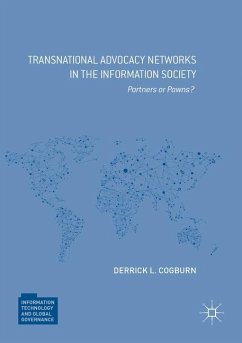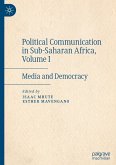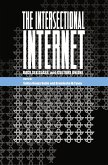This book examines the role of transnational advocacy networks in enabling effective participation for individual citizens in the deliberative processes of global governance. Contextualized around the international conference setting of the United Nations-sponsored World Summit on the Information Society (WSIS) in 2003 and 2005, the book sees epistemic communities and information and communication technologies (ICTs) as critical to the effectiveness of this important organizational form. Historically, governments have dominated the official "conference diplomacy" surrounding these World Summits. However, reflecting the UN General Assembly resolution authorizing WSIS, transnational civil society and private sector organizations were invited to participate as official partners in a multistakeholder dialogue at the summit alongside the more traditional governments and international organizations. This book asks: are transnational advocacy networks active in the global information societyinfluential partners in these global governance processes, or merely symbolic tokens-or pawns? Cogburn explores the factors that enabled some networks-such as the Internet Governance Caucus-to persist and thrive, while others failed, and sees linkages with epistemic communities-such as the Global Internet Governance Academic Network-and ICTs as critical to network effectiveness.
Bitte wählen Sie Ihr Anliegen aus.
Rechnungen
Retourenschein anfordern
Bestellstatus
Storno








